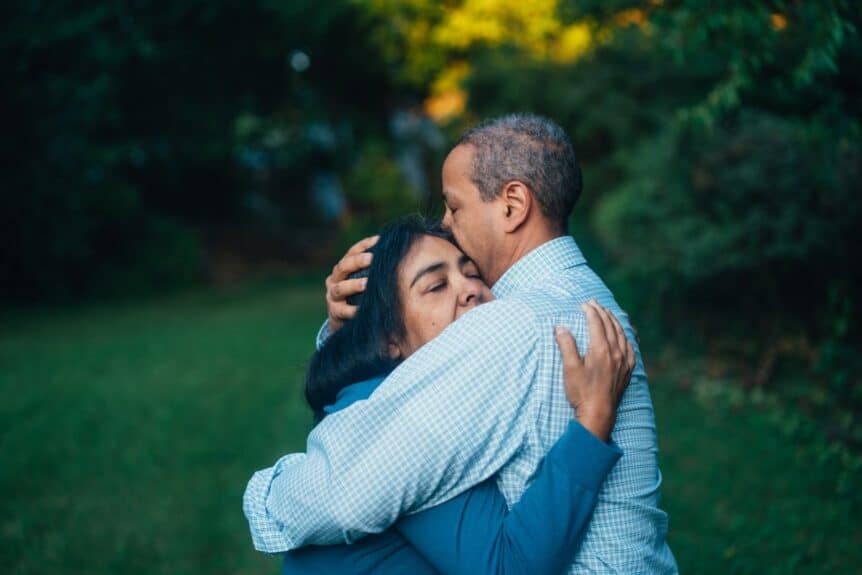Couples counselling is valuable for improving communication, resolving conflicts, and strengthening relationships. However, convincing your partner to attend counselling can be a challenging task. Many people may resist counselling for various reasons, such as feeling embarrassed or ashamed, unsure of what to expect, or believing that counselling won’t be effective for their relationship.
Are you wondering how to convince your partner to go to couples counselling? It’s helpful to start by understanding why your partner is concerned about attending counselling. Counselling will teach you how to understand your partner’s perspective, learn how to communicate the benefits of counselling, address any misconceptions, and offer support and reassurance. By following these strategies, you can help your partner overcome their resistance to counselling and take the first step towards building a healthier and happier relationship. Get practical insight on how to convince your partner to go to couples therapy.
How to convince your partner to go to couples counselling
Understand your partner’s perspective
One of the critical steps to persuading your partner to attend couples therapy is understanding their perspective. This involves listening to their concerns and asking open-ended questions to gain insight into their reasons for resistance. It’s essential to create a non-judgmental and safe space where your partner feels comfortable expressing their concerns.
Listening to your partner’s perspective can help you tailor your approach to the conversation. It’s also important to consider whether underlying issues may be causing your partner’s resistance, such as anxiety, depression, or past traumas. In these cases, suggesting they seek individual therapy before attending couples counselling may be helpful.
Communicate the benefits of counselling
This is a powerful way to convince your partner to attend. It’s important to discuss how counselling can improve the relationship and offer concrete examples of how it’s helped other couples. You can also highlight the techniques and strategies learned in counselling, such as mindfulness, active listening, and stress reduction techniques.
One of the primary benefits of couples counselling is that it provides a safe and neutral space for both partners to communicate their thoughts and feelings. A trained therapist can help facilitate healthy communication and offer tools and strategies for resolving conflicts. It can also help partners better understand each other’s perspectives and needs, leading to a stronger and more empathetic relationship. Additionally, couples counselling can help partners develop skills to strengthen their relationship, including effective communication, problem-solving, and conflict resolution. These skills can be valuable not only for romantic relationships but can be applied to other relationships as well.
Address any misconceptions about counselling
Many people may have misconceptions about counselling — the most common being the assumption that it’s only for couples with severe issues or those on the brink of divorce. On the contrary, couples counselling is for all couples and is one of the best ways to strengthen your relationship. It’s also helpful to explain what to expect during counselling sessions. For example, you can explain that the therapist will provide a safe and supportive environment without taking sides. Finally, you can share resources to help your partner understand counselling better. This can include books, articles, or videos about couples counselling or personal testimonies from other couples who have attended and benefited from it. Addressing misconceptions will help your partner feel more comfortable and confident about their choice to attend.
Offer support and reassurance
Reassure your partner that seeking help is a sign of strength, not weakness — and that attending counselling does not mean the relationship is failing. It’s also helpful to offer a concrete day and time to attend the first counselling session together. This demonstrates your commitment to working on the relationship as a team. You can offer to take the lead on finding a therapist that suits your schedule and budget. Even with all this effort, your partner may need time to process the information and decide. It’s essential to respect their choice while continuing to offer support and reassurance — regardless of whether or not they choose to attend right away.
Strengthen your relationship through counselling
Convincing your partner to go to couples counselling may seem daunting. Still, it’s an essential step towards building a stronger and healthier relationship. By listening to your partner’s concerns, communicating the benefits of counselling, addressing any misconceptions, and offering support and reassurance, you can help your partner feel at ease about seeing a counsellor.
Get affordable online couples counselling and relationship counselling — available on your schedule.

